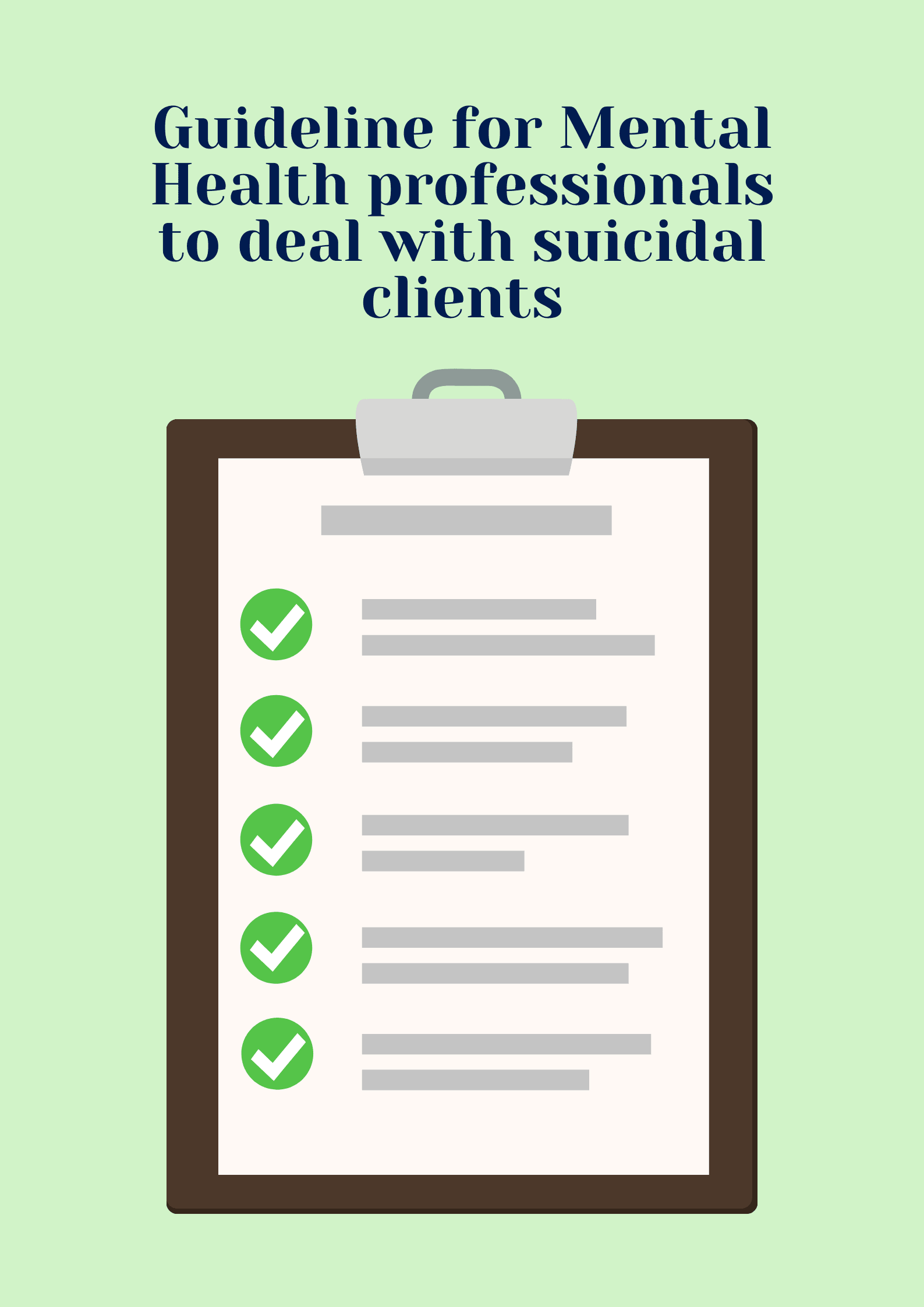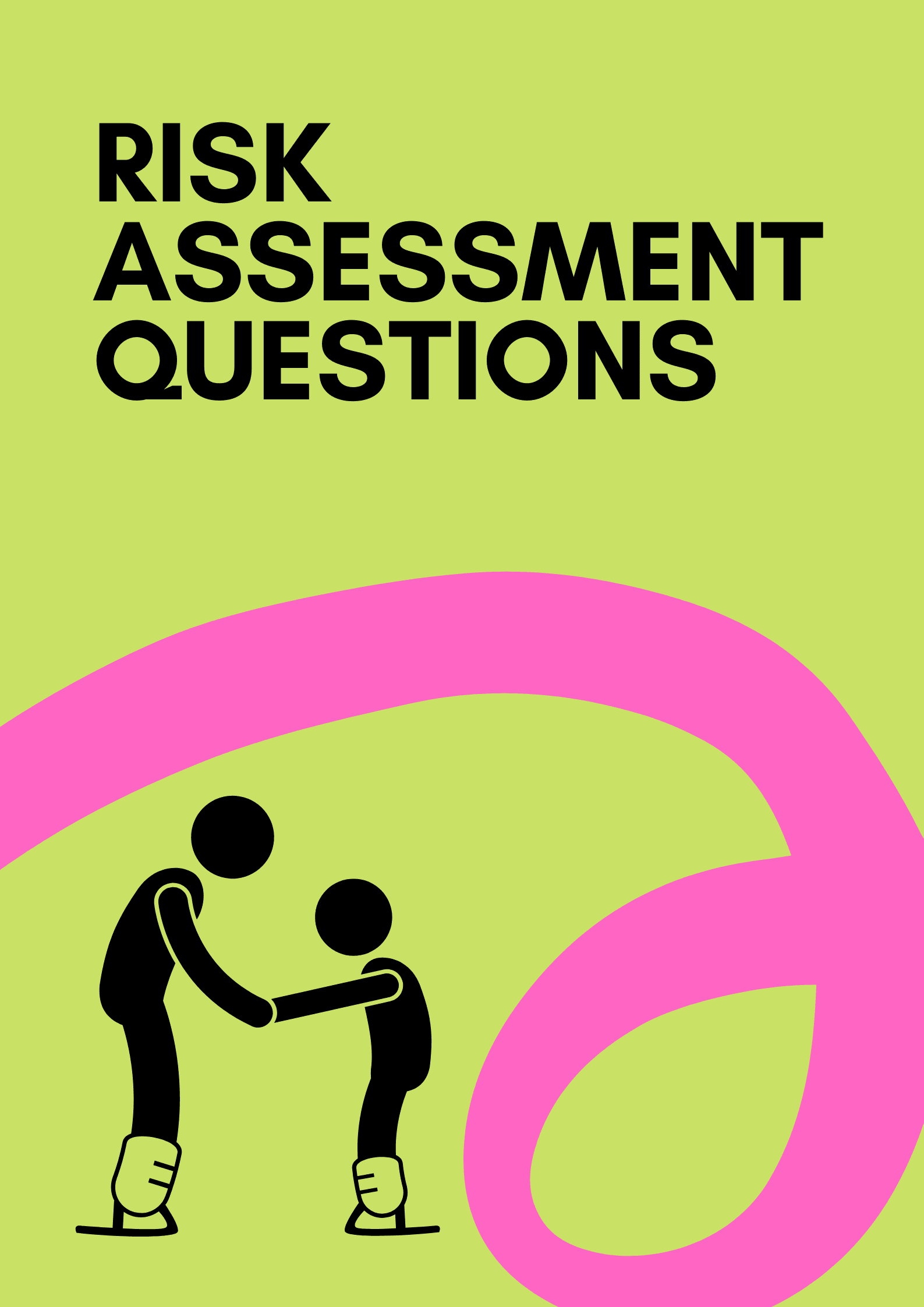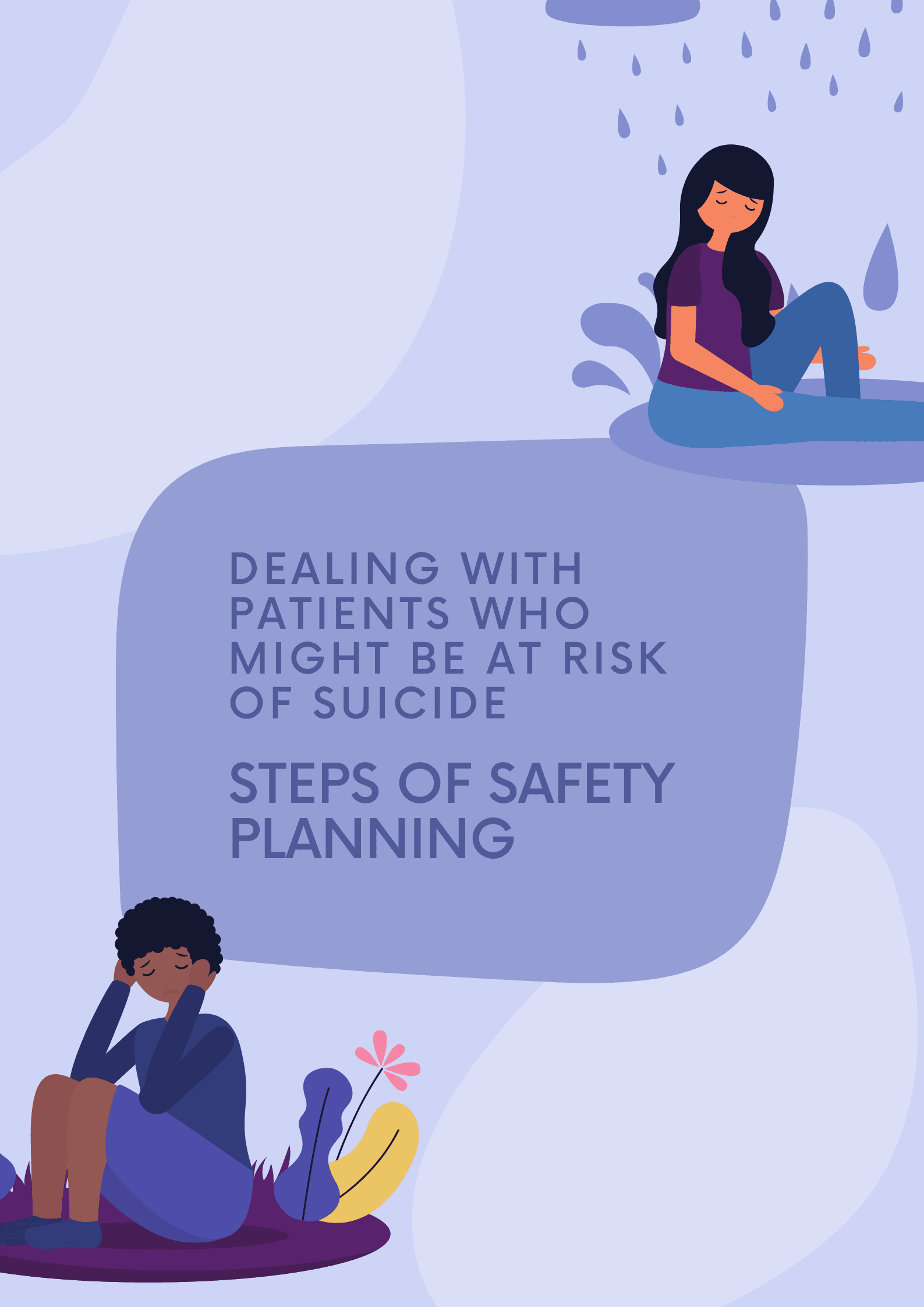
Guideline for Mental Health professionals to deal with suicidal clients
Evidence shows that the relationship between the Professional and the patient can often be one of the most important factors in reducing self-harm ideation. A significant factor may include the professional’s genuine concern and willingness to discuss the client’s emotional issues. Some reassuring statements like: ‘I think it is my job to make sure that you’re doing fine and I have been having some concerns that things are not be going so well for you at the moment. Is it okay that we talk a little about how you are doing and feeling?’
At times it can be daunting asking direct questions about suicide and mental illness for fear of upsetting the person, stigmatizing your patients, or feeling that you might put ideas in their head. But it is the first step to providing support by talking about it. By being calm, non-judgemental, and empathetic, a Professional provides the space for a client to openly discuss their thoughts. They can be encouraged to tell their story, outline their stresses, provide information about their history, and describe their current suicidal thoughts. Asking about suicide is imperative. During the evaluation, obtaining the history of the frequency and intensity of the suicidal thinking, history of suicide attempts, patient’s psychiatric history and medical history, overall mental state, and level of support will determine the overall risk and the subsequent management plan required. However, it is important to remember that just asking about suicidal ideation does not ensure that accurate and complete information will be received. Some example questions are highlighted below.
- Do you ever feel like giving up?
- How does your future seem to you?
- Does your life ever seem so bad that you wish to die?
- How often do you have these thoughts? How intense are they?
- Have you made any plans? If so, what have you been thinking about?
- How close have you come to doing something?
- What stops you from doing something?


